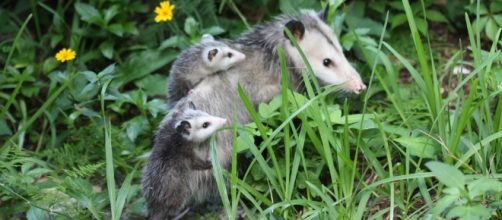Not everyone finding wildlife in their backyard is happy about the prospect. Some may feel that they are dealing with a nuisance. Opossums may not be as cute as the cottontail rabbit that hopped by your garden, but they are more helpful than harmful. Not only do they protect your garden, reducing the number of insects, they have potentially life saving qualities. Aside from reducing the chance that your family contracts Lyme Disease, their blood's natural resilience to snakebites has led scientists to developing a new form of antivenin.
Tick-tock: the danger of ticks in your backyard
An especially mild winter means most of the United States will face a higher than usual population of insects and arachnids. Among these pests are ticks. Ticks are small, parasitic creatures that latch onto mammals to engorge themselves on the blood of their host. While that alone seems off-putting, the major danger lies within the disease ticks may carry. Tick-borne diseases include anaplasmosis, Lyme disease, and Rocky Mountain Spotted Fever. Multiple infections are possible from a single tick bite. Not all ticks are infectious, but they should be removed as soon as possible, using tweezers to pull the head out from the host's skin. Checking for ticks after spending time in heavily wooded areas should be routine.
Tick bites are characterized by a target shaped rash that may spread along the body. The tick may not be still attached, as they fall out when fully engorged. Additionally, signs for illness may take days to weeks to appear. Dogs and cats should be medically treated for ticks, as not only can they contract diseases, but they can carry ticks indoors.
Opossums are tougher than they appear
While there are treatments available to reduce the number of ticks in your backyard, these services can be costly. Although birds may eat ticks, they are no match for nature's vacuum. Not only have experiments found that opossums consume a large quantity of ticks, they are less prone to tick-borne illness.
This natural defense not only protects the opossum host, but other animals in the area. When a tick bites a opossum, it is unlikely to contract diseases from the host's blood, so slows the spread of disease. Most ticks don't even last till they are fully fed and are eaten in the process of grooming. Opossums' natural defenses extend to immunity against bee stings and snakebites. As opossums' diets include rattle snakes, the toxin-neutralizing qualities of their blood has been used in the development of a new antivenin. Rabies in opossums are rare, due to their relatively low body temperature. These intelligent creatures, scoring higher in maze-based experiments than mice or cats, deserve your respect. Next time you see a opossum in the backyard, let it stay and do some Pest Control for you.


